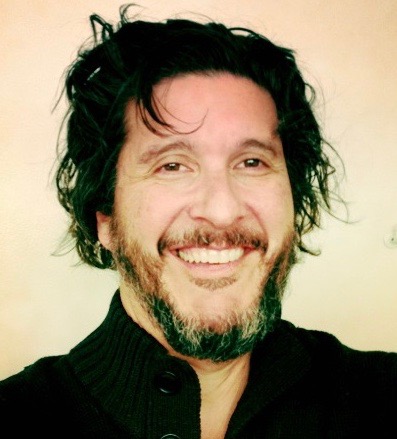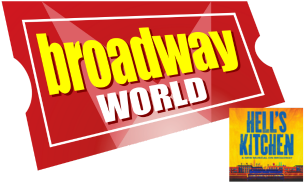Interview: Kevin Lawler of GREAT PLAINS THEATRE CONFERENCE at Great Plains Theatre Conference
 The Great Plains Theatre Conference is one more thing that makes Omaha special. Since 2006, GPTC has welcomed nationally respected playwrights, directors and actors. Guest artists lend their expertise to emerging playwrights and attendees through workshops, MainStage and PlayLab feedback sessions and seminars. This year the Honored Playwright is Maria Irene Fornes, whose work will be featured throughout the week. She will be recognized for her extensive body of work during PlayFest. Kevin Lawler, Producing Artistic Director for the GPTC and seasoned poet, playwright, director, designer, and actor, took the time to discuss the 14th annual conference.
The Great Plains Theatre Conference is one more thing that makes Omaha special. Since 2006, GPTC has welcomed nationally respected playwrights, directors and actors. Guest artists lend their expertise to emerging playwrights and attendees through workshops, MainStage and PlayLab feedback sessions and seminars. This year the Honored Playwright is Maria Irene Fornes, whose work will be featured throughout the week. She will be recognized for her extensive body of work during PlayFest. Kevin Lawler, Producing Artistic Director for the GPTC and seasoned poet, playwright, director, designer, and actor, took the time to discuss the 14th annual conference.
Can you tell me about the origin of the Great Plains Theatre Conference?
Sure. Dr. Jo Ann McDowell was the president of the college at the time. She had founded two theatre conferences in association with two other colleges and during her work with those projects she had become associated with Edward Albee. When she moved from Alaska to Omaha, she brought the theatre conference idea with her, and Edward Albee, too. She launched the original idea, which is a play development conference. It's changed a bit over the years in some significant ways, but the heart of it is still there. We bring in brand new plays and playwrights and top theatre artists from across the country to give response to the playwrights. We use all local actors and directors for the readings.
How do you solicit these plays?
It's mainly through a national call, although it's been going international lately. We've been getting submissions from all over the world. American Theatre magazine is one key source where we put out a call for plays, along with various other play publications that list us.
When do you start the solicitation?
We put out the call in September and leave it open until October 15. We cap the number of plays that we can get at 1,000. We don't always hit that mark, but we usually get between 800 and 1,000.
Do you have a panel that reviews the plays and selects them?
Yeah, we have a first round of readers and then a second round. The first round will be about 35 or so playwrights on a list we've developed over the years. Each of them gets about 3o plays to read and review. They send them back to us. In the second round, there's usually three people that read through the top-rated plays that made it through the first round.
Do you recruit the directors once you've chosen the plays?
Scott Working, our Associate Artistic Director, and I have about 60 years of theatre experience in Omaha between the two of us. We know a lot of the folks in Omaha and what their work is like and what they like to do. We try to make a good match of plays and directors. We also try to bring some new people on board each year, too. We leave the casting of the plays up to the directors. We will help them if they need it, but they cast their own plays.
Are all of the directors from Omaha?
Most are from Omaha. Occasionally, we will get someone from out of state to direct, but it's very rare. I think they are all local this year.
Do people come in from out of state to attend your workshops?
I don't know if anybody travels from out of state just to come to the workshops. It's mostly the invited guest artists, a few people will register and come, and a lot of local artists. There are more and more every year. So, no, we don't really draw from out of state and we don't really market for that. One of the things that is nice about our conference as opposed to others is that there is not a plethora of producers and business people and agents. For example, if you go to Humana Festival in Louisville, considered one of the biggest for play development, there is a huge business presence with people buying plays and negotiating, thinking about seasons. One of the reasons that our conference has grown so quickly is that we have none of that. Many playwrights have said that they feel safe here in a way they don't at the larger conferences. It's a different atmosphere.
Some of the plays that do go through here, do they end up at one of the larger conferences?
Playwrights who come through here are frequently asked to submit to places that have closed submission processes. People keep an eye on who we bring in, which is a nice compliment. Plays that are developed here will frequently get productions in much larger cities and venues.
Do you have scouts that show up?
No. (laughs) It's the opposite of what everybody thinks. Luckily, we don't have scouts that show up. Because the minute that happens, it all changes.
What kind of turnout do you expect?
For the workshops, the actual classes that the guest artists teach, it depends on the workshop. Some of them are full and some are a little bit smaller. Each year it seems to be a bit fuller. They are free and taught by top artists in the country. It's a great opportunity. There's always some actor workshops, but the majority are for playwrights.
Are these offered in conjunction with Metropolitan Community College? Do the theatre students receive credit for attending?
There's not a direct connection in terms of getting credits, but I know that people involved with the Metro program have taken workshops and gotten very involved with the Theatre Conference.
What about the venues? Will all of the workshops and readings take place here at the Fort Omaha campus?
For the PlayLabs, which are the 20 new plays, these are all here at the Fort Omaha campus. These happen during the day time. They are open to the public. Free of charge. No reservations needed. The schedule and descriptions of the plays, the playwrights, and the local actors and directors are all online.
There are three official (what we call) responders to the plays. Two will be guest artists. The third one is a designer. We have a great team of dramaturgs and they will run the readings. After the reading, the panel will give their response to the playwright, and then they open up the response to the whole audience. So then this conversation ensues. Most of the audience are the wonderful playwrights. The Omaha theatre community, and also the general public, often get involved. It's fascinating!
These playwrights and guest artists are quite smart. They are all at the top of their game. And the plays are very passionate. The material, the topics, and the depth with which they explore things is quite moving. So going to these PlayLabs is a great experience for anybody who wants to come out. Especially since you can just show up, look through the guide and decide which ones to go to. Stay all day and see a number of plays.
Why is there a designer on your PlayLab panel?
We work with the designers not to come up with a complete stage design, but more their response to the play that they can share with the playwright. The design wing began about six years ago with Justin Townsend who is one of the leading designers in the country right now. (He opened Jagged Little Pill and Moulin Rouge this past year). He and I wondered, "What would it be like to bring out some emerging designers who seem to be at the top of their game, but still beginning, and have them experience this week?" Justin said he would wrangle them up and get this started. Last year was the first year that we set up so that the design wing fellows would each be assigned four plays. They would give their response to those plays and work with the playwrights during the week. It's been a game changer for the conference and for the designers. They almost never get to be together with the playwrights in the early development of the play. It's sort of unheard of. That's one of the exciting aspects of the new growth of the conference.
Besides workshops and PlayLabs, what else is included in the GPTC?
In the evenings, we do what we call "Playfest." It's a festival of new work. We do full productions. This year it's "Epic" by Ellen Struve and "The Blues of Knowing Why" by Christopher Maly (directed by Denise Chapman.) We are also showing "The Rest I Make Up" which is a documentary film about Maria Irene Fornes, who is one of the greatest teachers and playwrights our country has had. She just passed away this last year. She's our honored playwright this year. This documentary film won a bunch of awards. We're showing that at FilmStreams at the Ruth Sokolof Theatre downtown on Tuesday night right after Memorial Day. The director, Michelle Memran, and one of the producers, Katie Pearl, will be there for that night. They're going to give a talk back afterwards. That night will be really incredible!
Michelle, the director, had a small assignment to interview Maria Irene Fornes. They struck up a bit of a friendship. As their friendship grew she said, "Maybe I should bring a camera and let's make some footage." She hadn't really known about Irene and the depth of her work in American theatre. She started filming and then 10 years later they had this documentary. Irene started suffering from dementia. They followed that whole journey all the way close to the end. So, it's a very special film. It's sad, but it's also joyful and life-affirming from what I've been able to see and to read of it. It's been showing all over the country at large gatherings of people who love Irene's work.
On Saturday night, which is our final night of the theatre conference at the Swanson Center where we will be doing all of the PlayLab readings, we are doing a tribute to Irene. Monologues, scenes, some songs. A couple people who worked directly with Irene will tell some stories. It will run 45 minutes to an hour. There will be live music and dessert. That's June 1st at 7:30. It will be a nice evening. That's also free.
There's a lot of talk of "Free," so how do you get your funding?
Well (laughs), we work hard at it! We have some wonderful patrons who have supported the GPTC from the beginning. There are also some local businesses that support us. We have national funding from NEA and other sources, and local funding from the Nebraska Humanities and Nebraska Arts Council. People can also donate through the website, if they would like.
www.gptcplays.com
Videos
